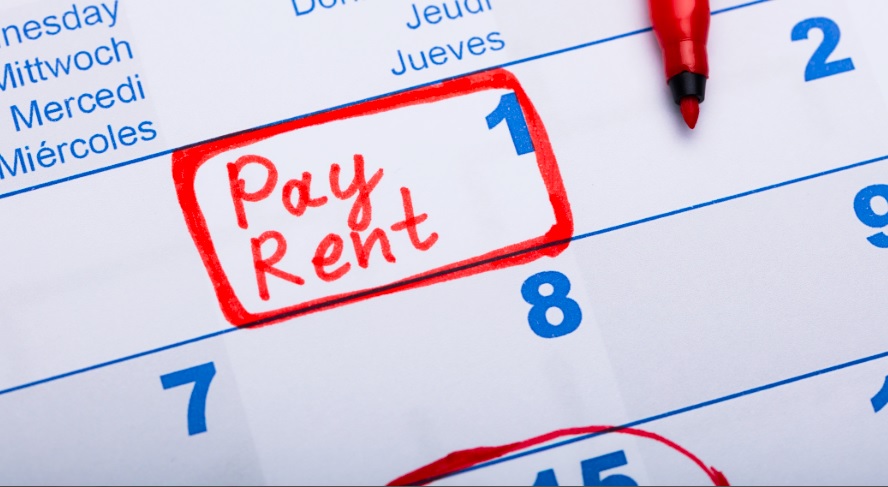The rapid spread of the COVID-19 virus that has shuttered most of the world, closing borders and businesses and putting many citizens in financial distress, continues to wreak havoc as April 1st rent payments loom. Apartment owners and property managers aren’t just fearing heightened exposure to the virus itself, but the potential onslaught of rent defaults by the reams of tenants who’ve been forced out of work.
Robert Gentile, President of Quinte Region Landlords Association, says he worries about what will happen if tenants, landlords and policy-makers don’t work collaboratively to ensure financial safety nets are put in place so that rents get paid throughout the state of emergency.
“Small landlords rely on their rents to pay their bills, the largest ones being mortgages, taxes, and utilities. While some landlords, but not all, may be granted deferrals on some bills, they will still have to be paid in the end. So it is not realistic for rents to simply be waived without government financial assistance.”
Gentile points to the recent campaign by many tenant advocacy groups to dissuade renters from paying their rent. From Vancouver to Toronto, groups like ACORN have been calling for “rent breaks” and other extreme measures to protect the renting public. Since several provinces have placed a temporary moratorium on evictions, the ramifications of dwindling revenue could prove significant – for some landlords, even forcing them into a state of bankruptcy.
Fortunately, tenants and landlords received some positive news on March 25th when the federal government introduced the Canada Emergency Response Benefit (CERB). Intended to quickly direct income support payments to Canadians whose incomes have been lost or severely reduced because of COVID-19, those who qualify for the program can now expect payments of up to $2,000 per month for potentially up to four months.
Joe Hoffer, Partner, Cohen Highley LLP Lawyers, says that the program could help considerably. “It means that many of the rent defaults landlords may experience on their April rent rolls could be resolved before the end of April and could stay resolved for at least four months.”
Since the crisis began, Hoffer has been advising landlords to work with tenants facing COVID-related income loss to come up with repayment plans unique to them. “Landlords are entitled to see some verification from tenants to support the claim of loss of income and its connection to COVID-19,” he said. “If the landlord is satisfied with that verification, then there is a good chance that the CERB program will supply funds to meet the tenant’s housing needs and avoid ongoing rent defaults.”
He also advises landlords to get familiar with CERB and other government assistance programs, recommending that they work with eligible tenants to incorporate the funds sourced from the programs into tenant repayment agreements. If the tenant refuses to cooperate with the process, or is simply not paying rent with the expectation the landlord has no remedy, Hoffer suggests issuing the N4 and following up with an eviction application; otherwise landlords will have no leverage to recover a judgment or repayment of arrears.
Applying for CERB
The application process for CERB is scheduled to open in early April, with individual income support payments amounting to $2,000 a month and delivery of funds up to ten days after processing. The money is intended to support tenants who have lost their jobs, become ill, or are under quarantine and/or have to stay home because of school closures. In addition, workers, contract workers and self-employed individuals who don’t meet the criteria for employment insurance (EI) will also qualify.
“The more familiar landlords are with access and eligibility for the program the better positioned they’ll be to assure anxious tenants their housing is secure while working with them to develop an effective rent arrears repayment agreement,” Hoffer said. “The bottom line for landlords is that the CERB program offers a lifeline to tenants who cannot meet their rental obligations. It also offers relief for landlords from the loss of rental revenue needed to operate their buildings in very difficult and demanding circumstances.”
Find out more at: https://www.canada.ca/en/department-finance/news/2020/03/introduces-canada-emergency-response-benefit-to-help-workers-and-businesses.html






We make our living of short term airbnb rentals which are entirely gone now. We pay loads of taxes in the good times. Now we still have to pay taxes and utilities, etc. Is there any support for people like us? Our rentals are our job, but we can’t see any way to apply for relief like so many others.
Can we apply for CERB because our AIRBNB is completely vacant since March 2020?
I would like to know this too